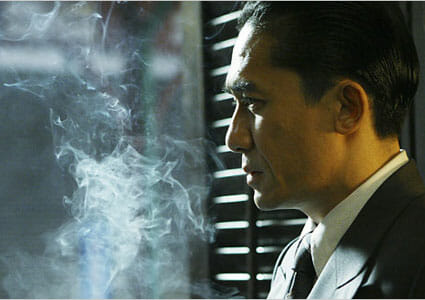Lust, Caution

Director: Ang Lee
Writers: Kelly Sane
Cinematographer: Rodrigo Prieto
Starring: Tony Leung, Wei Tang, Joan Chen
Studio/Run Time: Focus Features, 148 mins.
Most notable directors have a distinct style that will immediately peg their work; a way of moving the camera or focusing on a facial feature, the use of music or color. Ang Lee, even in his high-flying moments (Crouching Tiger, Hidden Dragon), often prefers the invisible style of old Hollywood. But with this WWII epic he has taken that mode to extremes. The editor’s work is invisible, yes, but so too is almost every trace of emotion, as well as the sensations of danger and lust.
-

-

-

-

-

-

-

-

-

-

-

-

-

-

-

-

-

-

-

-

-

-

-

-

-

-

-

-

-

-

-

-

-

-

-

-

-

-

-

-








































